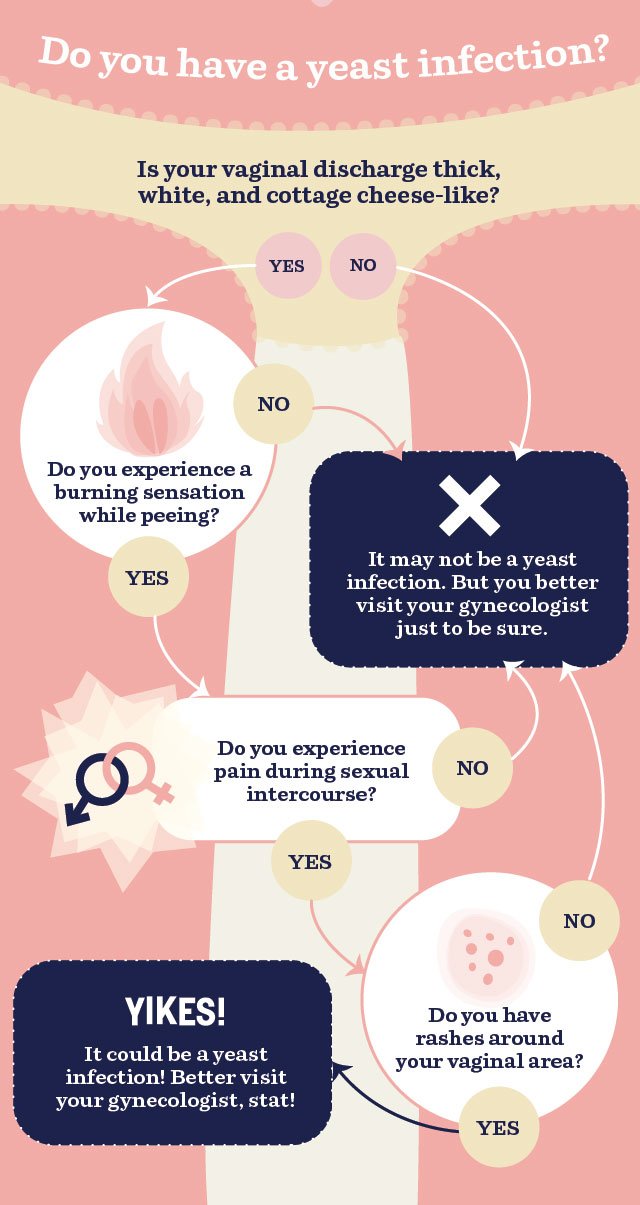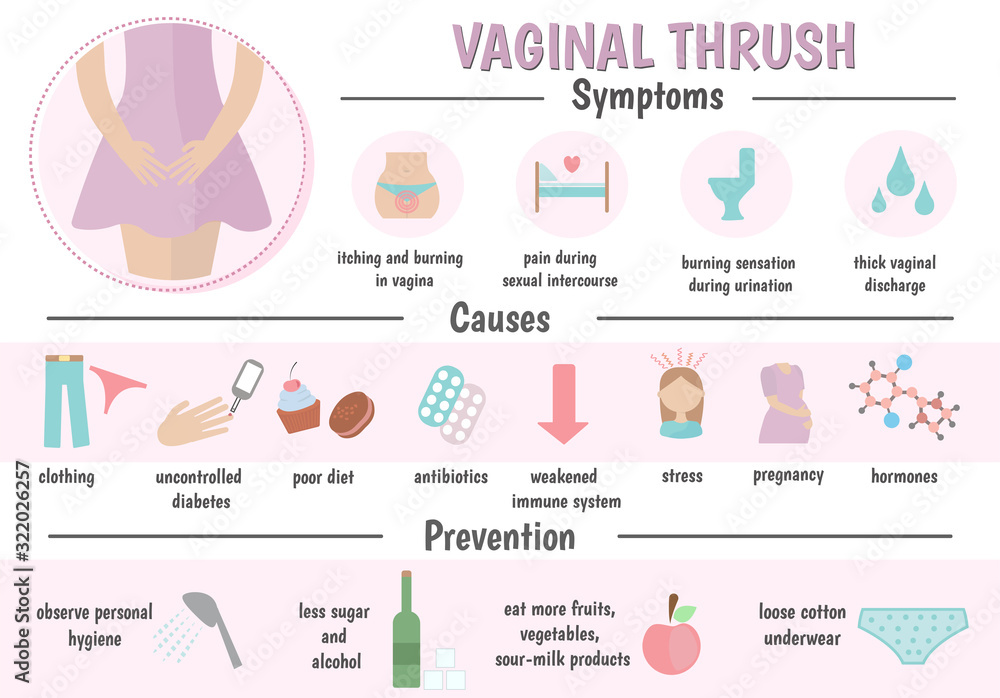Uncover the surprising reasons why yeast infections continue to plague so many women – and the unexpected solutions that work.
Table of Contents
- Introduction: Understanding Yeast Infections
- Common Symptoms of Yeast Infections
- Why Do Yeast Infections Happen?
- Ways to Treat a Yeast Infection
- Why Might Yeast Infections Persist?
- Tips for Keeping Your Health on Track
- How to Know When to See a Doctor
- The Importance of Staying Informed
- Conclusion: Recapping What We Learned
- Frequently Asked Questions (FAQs)
Introduction: Understanding Yeast Infections
We’re going to talk about a common issue called yeast infection and how it’s connected to your overall vaginal health. Yeast infections are a common problem that many people experience at some point in their lives. Understanding what they are and how they can affect your body is important for staying healthy.
The Basics
A yeast infection is a common problem that can happen to anyone with a vagina. It’s caused by a type of fungus called Candida that normally lives in small amounts in the vagina. However, when there is an overgrowth of this fungus, it can lead to an infection.
Why It Matters
Understanding yeast infections is important because they can affect your vaginal health. If left untreated, they can cause discomfort and other issues. Knowing how to recognize and treat them can help keep your vagina healthy.
Common Symptoms of Yeast Infections
Yeast infections can be quite bothersome, but identifying the symptoms early on can help you seek treatment sooner. Here are some common signs that indicate you might have a yeast infection:
Itchy Down There
One of the most common symptoms of a yeast infection is feeling itchy in your vaginal area. This itchiness can be quite uncomfortable and persistent, making you want to scratch often.
Unusual Discharge
If you notice a thick, white discharge that looks a bit like cottage cheese, it could be a sign of a yeast infection. This type of discharge is different from your usual one and may have a distinct odor.
Burning Sensation
Another typical symptom of a yeast infection is experiencing a burning sensation, especially during urination or intercourse. This uncomfortable feeling is a signal that something might be off down there.
Redness and Swelling
If you observe redness and swelling in your vaginal area, it could be due to a yeast infection. These symptoms can make you feel sore and tender, indicating that there might be an underlying issue.
It’s essential to pay attention to these signs and consult with a healthcare provider if you suspect you have a yeast infection. Remember, early detection and treatment can help you get back to feeling your best!
Why Do Yeast Infections Happen?
Yeast infections can be quite common, especially in women. Understanding why they happen is essential to managing and preventing them.

Image courtesy of via Google Images
Bacterial Vaginosis and Yeast Infections
One of the significant reasons yeast infections occur is due to a condition called bacterial vaginosis. Bacterial vaginosis happens when there is an imbalance in the bacteria that naturally live in the vagina. This imbalance can lead to an overgrowth of yeast, causing an infection.
When the good bacteria in the vagina, called lactobacilli, are outnumbered by harmful bacteria, like Gardnerella vaginalis, it creates an environment where yeast can thrive. This imbalance disrupts the natural pH of the vagina and allows yeast to overgrow.
In some cases, antibiotics used to treat bacterial vaginosis can also unintentionally disrupt the balance of bacteria in the vagina, leading to yeast infections.
Ways to Treat a Yeast Infection
When dealing with a yeast infection, it’s important to know that there are effective ways to treat it. Let’s explore two main treatment options: medications and natural helpers.
Medications
Antifungal medications are commonly used to treat yeast infections. These medicines work by eliminating the yeast causing the infection. They come in various forms, such as creams, suppositories, or oral tablets. It’s essential to follow your healthcare provider’s instructions carefully when using these medications to ensure their effectiveness.
Natural Helpers
In addition to medications, probiotics can be beneficial in treating yeast infections. Probiotics are good bacteria that help maintain a healthy balance in the vagina by keeping harmful yeast in check. You can find probiotics in certain foods like yogurt or in supplement form. Including probiotics in your diet can support your body’s natural defenses against yeast infections.
Why Might Yeast Infections Persist?
Often, yeast infections are easily treatable with medication. However, in some cases, these pesky infections may persist despite treatment. Let’s explore a few reasons why this might happen:

Image courtesy of via Google Images
Not Following Instructions
When you get medication to treat a yeast infection, it’s super important to follow the instructions carefully. This means taking the medicine exactly as your doctor or the package tells you to. Skipping doses or stopping treatment early might not completely get rid of the infection, allowing the yeast to come back.
Resistance
Sometimes, the yeast causing the infection can become resistant to the medication you’re using. This means that the medicine might not work as well as it did before. If your yeast infection keeps coming back even after using the prescribed treatment, it could be a sign that the yeast has become resistant to that specific medication. In this case, your healthcare provider may need to try a different approach to getting rid of the infection.
Tips for Keeping Your Health on Track
When it comes to keeping your vaginal health in check, there are some simple yet effective tips you can follow. Here are a few pieces of advice to help you maintain a healthy balance and avoid issues like yeast infections.
Regular Hygiene Practices
One fundamental way to promote vaginal health is through regular hygiene practices. It’s essential to keep the vaginal area clean and dry to prevent the overgrowth of harmful bacteria that can lead to infections. Remember to always wipe from front to back after using the bathroom to avoid introducing bacteria from the anus to the vagina.
Wear Breathable Fabrics
Another tip for promoting vaginal health is to wear breathable fabrics, like cotton underwear. These materials allow for proper airflow, reducing moisture and minimizing the risk of bacterial growth. Avoid tight-fitting clothing that can trap heat and moisture, creating an environment that bacteria thrive in.
Stay Hydrated and Eat a Balanced Diet
Hydration is key to overall health, including vaginal health. Drinking plenty of water helps flush out toxins and maintains proper bodily functions. Additionally, eating a balanced diet rich in fruits, vegetables, and whole grains provides essential nutrients that support a healthy immune system, aiding in the prevention of infections.
Use Probiotics
Probiotics are beneficial bacteria that can help maintain the balance of good and bad bacteria in your body. Consuming probiotic-rich foods like yogurt or taking probiotic supplements can promote a healthy vaginal flora, making it more difficult for harmful bacteria to thrive and cause infections.
| Reason | Explanation |
|---|---|
| Antibiotics | Disrupt the balance of healthy bacteria and yeast in the body, allowing yeast to overgrow. |
| Weakened Immune System | Leaves the body more susceptible to yeast overgrowth and recurrent infections. |
| Poor Diet | High sugar intake can feed yeast cells, leading to persistent infections. |
| Hormonal Imbalance | Fluctuations in hormone levels can create an environment conducive to yeast overgrowth. |
| Tight Clothing | Can create a warm, moist environment that promotes yeast growth and persistence. |
By following these simple tips for maintaining good vaginal health, you can significantly reduce your risk of developing issues like yeast infections. Remember, prevention is key when it comes to protecting your overall health and well-being.
How to Know When to See a Doctor
If you suspect you have a yeast infection but aren’t sure if you need to see a doctor, here are some signs to watch out for.

Image courtesy of via Google Images
Changes in Symptoms
If you’ve been treating the infection with over-the-counter products but your symptoms haven’t improved or have even gotten worse, it might be time to seek medical advice. Your doctor can help determine if it’s a yeast infection or another issue like bacterial vaginosis that requires different treatment.
Severe Discomfort
If you’re experiencing severe itching, burning, or pain in your vaginal area that’s causing a lot of discomfort, it’s best to consult with a healthcare provider. They can recommend the appropriate treatment to relieve your symptoms and ensure your vaginal health.
Recurring Infections
If you keep getting yeast infections frequently, even after following treatment recommendations, it’s essential to see a doctor. They can investigate why these infections persist and provide guidance on preventing future occurrences.
Remember, your health is important, and it’s always better to seek professional help if you’re unsure about your symptoms or if they don’t improve with at-home treatments.
The Importance of Staying Informed
Understanding your body and how to keep it healthy is crucial. When it comes to vaginal health, staying informed is key to taking control and making the best decisions for your well-being.
Empowerment through Knowledge
Knowledge is power. The more you know about your body, the better equipped you are to recognize any changes or issues that may arise. By staying informed about vaginal health, you can stay proactive in maintaining good hygiene and seeking help if needed.
Preventing Future Complications
Being informed about vaginal health can help you identify potential problems early on. This can prevent minor issues from developing into more severe conditions that may require medical intervention. Regular check-ups and understanding what is normal for you can help in the early detection of any abnormalities.
So, remember, whether it’s learning about yeast infections, bacterial vaginosis, or simple ways to boost vaginal health with probiotics, staying informed is a vital part of taking care of yourself.
Conclusion: Recapping What We Learned
In this blog post, we explored the world of yeast infections and how they can affect vaginal health. We learned that yeast infections are common issues that can be uncomfortable but are treatable.

Image courtesy of via Google Images
The Basics
A yeast infection happens when there is an overgrowth of a fungus called Candida in the vagina. This can lead to itching, burning, and discharge.
Why It Matters
Understanding yeast infections is important because they can impact your overall vaginal health and quality of life. By recognizing the symptoms early, you can seek treatment and prevent complications.
We discussed common symptoms of yeast infections, including itching, burning, and unusual discharge. These signs should prompt you to consider seeking medical advice if you suspect you have a yeast infection.
When it comes to treatment, antifungal medications can help clear up yeast infections. Probiotics, which are good bacteria, can also play a role in restoring the natural balance in the vagina to prevent future infections.
Why Might Yeast Infections Persist?
If yeast infections persist, it could be due to not following medication instructions correctly or developing resistance to treatment. It’s important to complete the full course of medication as prescribed to ensure the infection is fully eradicated.
To keep your vaginal health on track, maintaining good hygiene practices, wearing breathable cotton underwear, and incorporating probiotics into your diet can help prevent future yeast infections.
If you notice persistent symptoms or new issues arise, it’s essential to seek guidance from a healthcare provider who can provide a proper diagnosis and treatment plan tailored to your needs.
Remember, knowledge is power. By staying informed about vaginal health and understanding the factors that can contribute to yeast infections, you can take proactive steps to maintain a healthy and balanced vaginal environment.
Frequently Asked Questions (FAQs)
What Are Yeast Infections?
A yeast infection is a common issue that occurs in the vagina when there is an overgrowth of a type of fungus called Candida. This overgrowth can lead to symptoms such as itching, burning, and unusual discharge.
Why Is Understanding Yeast Infections Important?
It’s crucial to know about yeast infections because they can affect your vaginal health and overall well-being. By understanding what they are and how to treat them, you can take better care of yourself.
What Are Some Common Symptoms of Yeast Infections?
Some typical signs of a yeast infection include itching, burning, redness and swelling around the vagina, and a thick, white discharge that looks like cottage cheese.
Why Do Yeast Infections Happen?
Yeast infections can happen for various reasons, such as changes in hormone levels, wearing tight clothing, or taking certain antibiotics. Sometimes, they can also occur due to an imbalance in the vagina caused by bacterial vaginosis.
How Can Yeast Infections Be Treated?
Yeast infections can be treated with antifungal medications that help kill the fungus causing the infection. Probiotics, which are good bacteria that promote a healthy balance in the vagina, can also be used as a natural way to combat yeast infections.
Why Might Yeast Infections Persist?
Yeast infections may persist if the medications are not used as directed. It’s important to follow the instructions provided by your healthcare provider to ensure the infection clears up completely. In some cases, the yeast causing the infection may become resistant to treatment, making it harder to eliminate.
When Should You See a Doctor About Yeast Infections?
If you experience recurrent yeast infections, have severe symptoms, or are pregnant, it’s essential to see a healthcare provider. They can provide a proper diagnosis and recommend the best treatment options for your situation.





